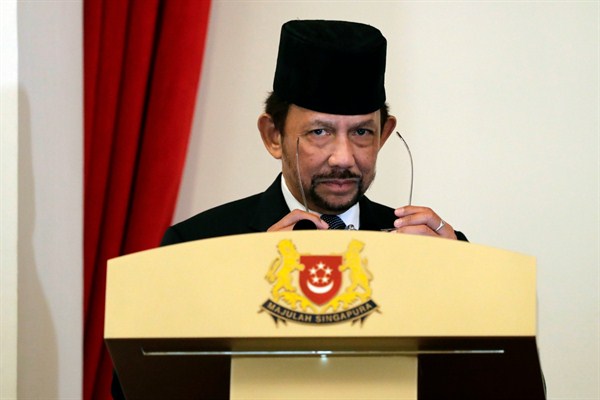Last month, Brunei implemented part of a harsh new criminal code based on Islamic law that stipulates, among other things, a potential sentence of death by stoning for those convicted of gay sex and adultery. The move drew swift condemnation from LGBT rights groups as well as the broader international community, with some prominent celebrities like George Clooney and Ellen DeGeneres calling for a boycott of certain Brunei-owned businesses. But according to Dominik Müller, an expert on Islam in Southeast Asia at the Max Planck Institute for Social Anthropology in Halle, Germany, important aspects of the legal and social reality facing Brunei’s LGBT community get left out of this criticism. In an interview with WPR, he discusses the long history of Sharia in Brunei, how Islamic thought in Brunei has been shaped by foreign influence, and how international criticism is being received in the country.
World Politics Review: What impacts are Brunei’s harsh new Sharia-inspired laws having on the country’s LGBT community? How much of a change does this represent from the situation prior to their implementation?
Dominik Müller: Bruneian laws have long carried heavy punishments on paper. Homosexual intercourse is punishable by up to 10 years imprisonment under the non-Sharia penal code, which was established in 1951, during the British colonial era, and still exists today. Brunei’s parallel Sharia legislation, also formed with British advice, dates back to the 1910s. It comprises several Islamic legal codes, including one that lists religious criminal offenses that have been punishable under Islamic law in Brunei for decades. The latter code has partly been amended as part of the latest legal reform.

